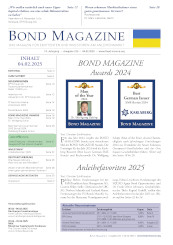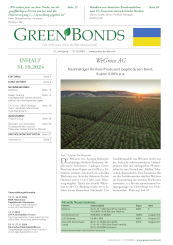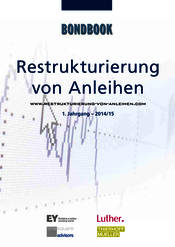Attributable to Jean-Michel Carayon, Senior Vice President, Corporate Finance, EMEA: 'QE will be positive for companies to the extent that it is successful in raising growth and inflation, especially when combined with the parallel impact of lower oil prices. However the risk of companies increasing leverage as a result of QE seems low - most have abundant liquidity and enjoyed access to affordable funding for several years, so to maintain their resilience to future shocks they are unlikely to step up on leverage now except for attractive acquisition opportunities considering the cheap financing available. Companies borrowing more is even less likely as the threat of increased interest rates does not look close.”
“It is unclear whether QE will unlock any material increase in access to capital for small- and medium-sized businesses (SMEs). Past efforts to stimulate lending have had mixed success and SMEs have acclimatised to operating in an environment where debt is rationed to some extent.”
Below other quotes, which you might also find helpful. Please let me know if you’d like to follow up with an interview.
Credit Policy – attributable to Colin Ellis, Managing Director and Moody's Chief Credit Officer, EMEA: “Overall, QE in the euro area will have some positive impact on asset prices, growth and inflation, but its impact will be more limited than that of the QE programme conducted in the United States. That partly reflects the ECB’s already extended accommodative monetary policy stance. We believe that the credit implications of asset purchases by the ECB would be mildly positive for the euro area’s sovereigns as well as for its corporate, utilities and infrastructure and structured finance sectors. However, we expect QE to have mixed credit implications for banks and to be credit negative for insurers.”
Sovereign – attributable to Alastair Wilson, Managing Director, Global Sovereign Risk, Moody’s: “For sovereigns, QE would be credit positive to the extent that it is successful in raising growth and inflation and lowering real debt burdens. However, since in practice its impact in those areas is expected to be limited, the credit implications are similarly low.”
Banking – attributable to Carola Schuler, Managing Director, EMEA Banking, Moody’s: “QE will have mixed effects on banks, lowering net interest margins but boosting asset prices. While asset quality will benefit from higher growth, it could be undermined if QE encouraged banks to invest in riskier assets. The overall impact will be marginally positive.”
Insurance – attributable to Benjamin Serra, Vice President, Senior Credit Officer, Moody’s: “The overall impact of QE is credit negative for the insurance sector, particularly for life insurers. In fact, QE will likely depress interest rates even further and for longer and this would squeeze investment margins of the insurers as they invest predominantly in fixed income securities, including sovereign bonds. Optically the balance sheet of the sector will look healthier as asset prices increase but in reality insurers are unlikely to realise these gains as they tend to hold their fixed income securities until maturity for matching purposes. The impact of QE will be strongest in countries like Germany and the Netherlands where insurers have offered relatively high guarantees on life insurance contracts and the mismatch of duration between assets and liabilities is the highest. As a result of QE, European insurers could opt for riskier higher-yielding securities in order to boost or maintain returns which would have a negative impact on insurers’ asset quality.”
www.fixed-income.org
--------------------------------------------------
Soeben erschienen: BONDBOOK Restrukturierung von Anleihen
Auf 104 Seiten werden detailliert alle wichtigen Hintergründe rund um die Restrukturierung von Anleihen für Unternehmen und Anleihegläubiger erläutert.
Die Ausgabe kann zum Preis von 29,00 Euro (inkl. USt. und Versand) beim Verlag oder im Buchhandel (ISBN 978-3-9813331-2-1) bestellt werden.
www.restrukturierung-von-anleihen.com
--------------------------------------------------














